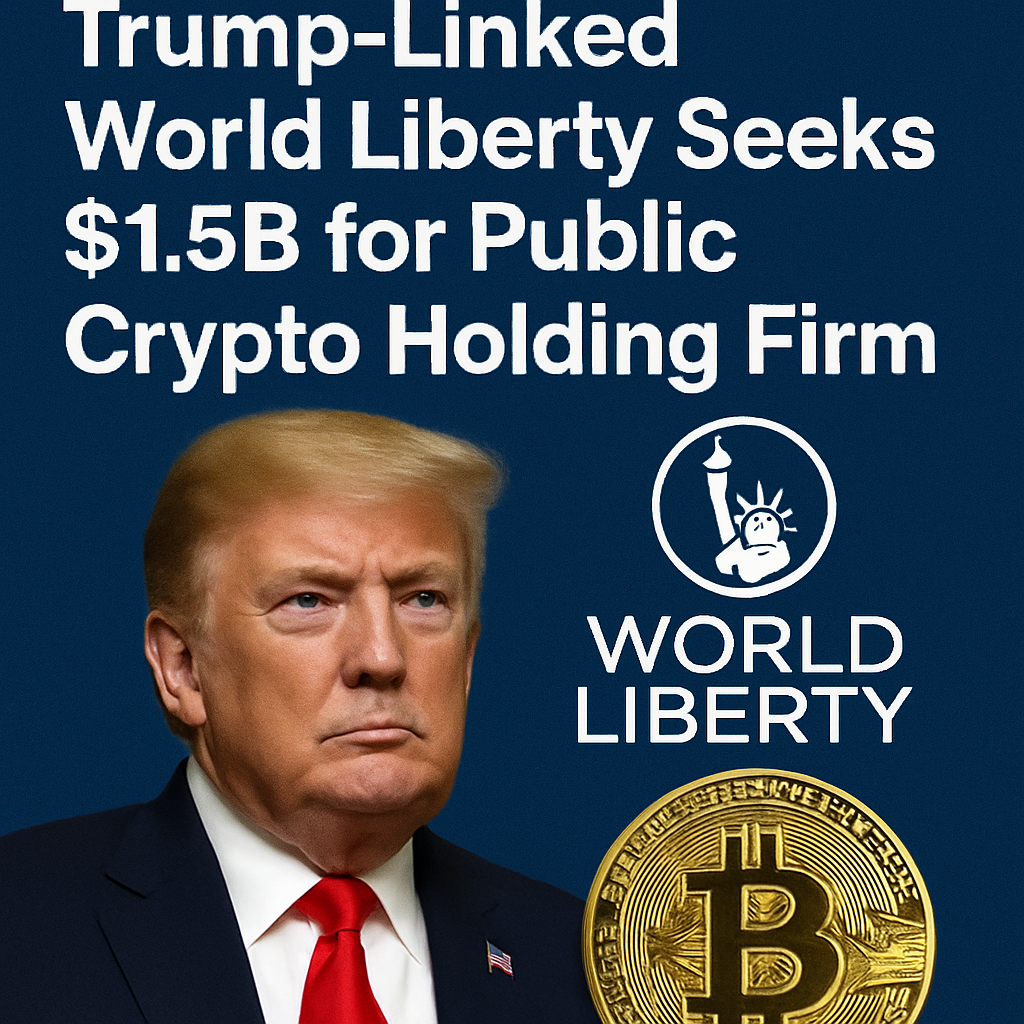World Liberty Financial, a decentralized finance platform co-founded by the Trump family, is reportedly engaging with major investors to raise approximately $1.5 billion to establish a publicly traded treasury company for its WLFI governance tokens, as cited in a Bloomberg report.
The proposed structure involves acquisition of a shell company listed on the Nasdaq, enabling WLFI tokens—initially issued as non-transferable governance assets—to become tradable. The capital raise aims to mirror the strategic treasury model pioneered by MicroStrategy, which has amassed over $72 billion in Bitcoin holdings through public equity issuance.
According to sources familiar with the discussions, World Liberty has approached leading technology and cryptocurrency investors, with deal terms and investor commitments advancing rapidly. The platform currently issues USD1, a dollar-backed stablecoin, and plans to leverage the new public entity to expand its treasury operations and governance token liquidity.
The financing initiative aligns with recent U.S. regulatory shifts, including a presidential executive order permitting cryptocurrency and other alternative assets in 401(k) retirement accounts. This policy change is expected to unlock significant institutional capital into digital assets and related financial instruments.
World Liberty’s WLFI ecosystem encompasses token governance, decentralized lending, and stablecoin services. The planned treasury vehicle would consolidate WLFI holdings and potentially deploy additional capital into diversified crypto reserves, enhancing the platform’s market presence and liquidity provisions.
Market analysts regard the move as a continuation of the trend wherein public companies transition to digital-asset treasury firms. The establishment of WLFI’s public entity could set a precedent for governance-token-based corporate financing, expanding the utility and tradability of native protocol tokens in institutional markets.
As negotiations progress, stakeholders are monitoring regulatory approvals, investor demand, and governance frameworks to assess the potential impact on the broader crypto treasury sector. The outcome may influence similar tokenized governance projects considering public capitalization strategies.

Comments (0)